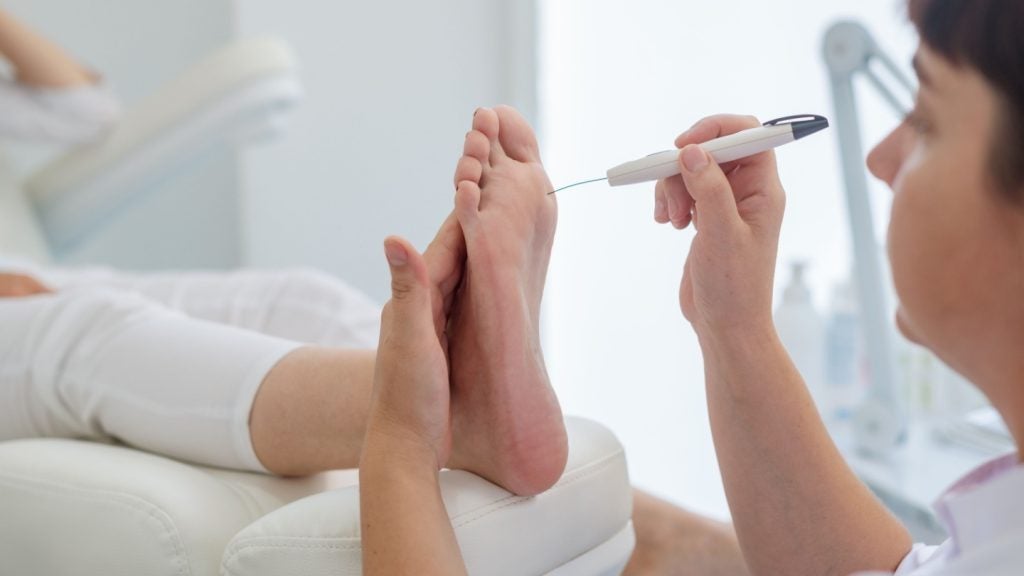
Significant regulatory changes across numerous medical fields are coming in 2024 with pharmaceutical and medical device companies urged to be ready for a year of legal alterations.
From the UK’s reworking of the Voluntary Scheme for Branded Medicines (VPAS) and delayed plans to introduce a new medical device validation scheme, to the United States’ attempt to regulate products that utilise artificial intelligence (AI), 2024 is set to be a busy year for healthcare regulators.
US – Regulating LDTs
Chief among US legal changes set to come into effect in 2024 that has raised concern is the Food and Drug Administration’s (FDA) plan to regulate laboratory-developed tests (LDT) as medical devices, a plan that has seen pushback from a number of companies who say that the move is unnecessary.
The proposed rule seeks to amend the FDA’s regulations to make explicit that In Vitro Diagnostic Products (IVDs) are devices under the Federal Food, Drug, and Cosmetic Act. This is when the manufacturer of the IVD is a laboratory.
The move has received criticism from groups such as the Utah University-based ARUP Laboratories who argue that research published in the American Journal of Clinical Pathology, details that 93.9% of tests ordered in 2021 were tests that were cleared, approved, and authorised by the FDA.
David Rosen, former FDA adviser and partner for the legal company Foley & Lardner, detailed how the change in regulation could cause uncertainty.
How well do you really know your competitors?
Access the most comprehensive Company Profiles on the market, powered by GlobalData. Save hours of research. Gain competitive edge.

Thank you!
Your download email will arrive shortly
Not ready to buy yet? Download a free sample
We are confident about the unique quality of our Company Profiles. However, we want you to make the most beneficial decision for your business, so we offer a free sample that you can download by submitting the below form
By GlobalData“These products [LDTs] have been on the market for quite some time. I think what the FDA is saying is that they want to have more data so that they can have confidence in the reliability of these tests and the ability of practitioners to rely on the results that come from these tests,” said Rosen.
“They are going to have to staff up to be able to do it cause it’s going be a challenge, there’s a significant number of them out there and whether or not companies are just going come into the market to be able to do this and get these tests cleared through the FDA and how fast it’s going to do is going to remain a challenge.”
The FDA’s rationale behind the decision is that it is concerned patients could initiate unnecessary treatment, or delay or forego proper treatment altogether, based on inaccurate test results, something they worry could cause harm. The FDA has said that since the initial rules regarding the regulation of LDTs were laid down with the Medical Device Amendments of 1976 ruling, these tests have become increasingly more complex, varied, and able to be run at much higher capacities than before.
Torrey Cope, partner for US law firm Sidley, detailed how he felt that the reaction to the announcement amongst life science firms had been mixed, with some firms taking the announcement better than others.
Cope said: “Either way I think it will have a big impact on pharma companies because they have increasingly had to deal with companion diagnostics to get approval for many products, and in some cases, a significant amount of the testing used in the real world is a laboratory developed test, and that’s an issue they have always had to navigate.
“If our labelling says we have to be using an FDA-approved test, and we know physicians are using a non-approved lab-developed test, how do we navigate that? Certainly, if the legal landscape changes that will change how they will plan for that issue going forward.”
March-in rights
Beyond the FDA, the Biden Administration has plans to allow agencies to use march-in rights to sRegulatory changes in the US and UK to watch in 2024eize patents of government-funded drugs if it feels that pharmaceutical firms have priced them too high. This would be done by taking advantage of a clause in the 1980 Bayh–Dole Act that allows the government to grant production rights of government-funded patents to third parties if the product is not accessible to the public.
However, in making the announcement, the White House urged that the use of march-in rights will be ‘extremely fact-dependent’ and will be based on the totality of all circumstances.
David Rosen predicts that this will likely lead to substantive issues and debate, legal and otherwise, over whether the government truly has the right to seize patents and that it has the potential to stifle the US’ research and development sector, arguing that the government can’t set drug prices.
Rosen said: “I think that there is going to be a lot of controversy and litigation over this, that’s for sure. I think that we want the National Institute of Health (NIH) to participate because of the nature of the cutting-edge research it does, and to have the government understand what is going on, but to allow the government to come in and seize those patents, they will need to strike a balance.
“It’s very hard to evaluate the cost-effectiveness of a therapy if it costs a lot of money but it treats the disease is that better for the healthcare system than not having therapy at all? If the government marches in and seizes patent rights that’s very likely to have a negative effect on continued drug development using NIH funding.”
Following this announcement the Biden administration revealed further initiatives including a plan to require some drug companies to renegotiate the prices of some drugs to stay in line with inflation, highlighting 48 drugs within the Medicare programme that have experienced price hikes surpassing inflation in Q4 2023.
UK – Medical Device shake up and Voluntary Medicines pushback
In the UK the medical device market is set to see a shake-up as the country prepares to replace the already established European Union CE marking, with its own UKCA mark, intended as the national equivalent to the certification following the country’s exit from the EU.
Initially, device manufacturers whose devices bore a CE mark would have been required to change over to the UKCA system by June of 2023, but this was later delayed by the Medicines and Healthcare Products Regulatory Agency (MHRA) by a year, meaning that it will come into effect in June of 2024.
Louise Fullwood, legal director for UK legal firm Pinsent Masons, said: “This further delay takes away the impetus for manufacturers to get UKCA-ready as the can continues to be kicked down the road with no certainty on what the eventual position will be.”
“A contributing factor to the announced delay is likely to be the relatively small number of UK-approved bodies for carrying out conformity assessments – Dekra was appointed last month as just the third UK-approved body. A further six organisations are currently going through the approval process and the MHRA is in discussions with several other potential candidates.”
The start of next year will also see the introduction of the Voluntary Scheme for Branded Medicines Pricing, Access and Growth (VPAG) system, a replacement to the UK’s previous VPAS system, which came about following significant industry pushback over proposed changes to the 2024 VPAS system resulting in industry-wide negotiations.
Previously, the changes proposed by the Department for Health and Social Care would have seen the imposition of a payback rate of 26.5% in hopes of maintaining the NHS’ ability to acquire branded medicines in the wake of the Covid-19 pandemic. However, following industry pushback from groups such as the British Pharmaceutical Industry (ABPI), a deal was struck on 21 November, replacing the single payback rate set each year with two differential rates, for “newer” and “older” medicines. It also changes annual allowed growth in sales of branded medicines from 2% in 2024, rising to 4% by 2027. Older medicines that have not previously had price reductions will pay a top-up rate of up to 25% plus a base rate of 10%.







